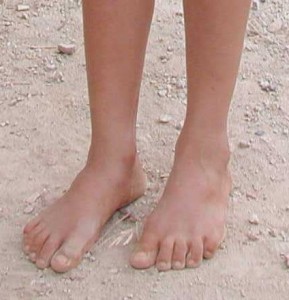Mindfulness and Gratitude
 I didn’t grow up in the kind of household where we all sat down to eat together, holding hands, and saying grace. At dinner time, my mom was usually still at work. So my dad would usually cook me noodles or leftover tofu and veggies, and I would eat at the table by myself while I did my homework. I don’t have a lot of bad feelings about it–that’s just the way it was in my house.
I didn’t grow up in the kind of household where we all sat down to eat together, holding hands, and saying grace. At dinner time, my mom was usually still at work. So my dad would usually cook me noodles or leftover tofu and veggies, and I would eat at the table by myself while I did my homework. I don’t have a lot of bad feelings about it–that’s just the way it was in my house.
So, for a long time, the practice of saying grace before a meal was pretty unfamiliar to me. To be honest, it was kind of uncomfortable, and I always dreaded being asked to “do the honors”. In my more cynical moments, I felt grace was just a ritual that creepy Christians did to make other people uncomfortable at restaurants. But since I have become a pastor, I have become the person in the room people turn to for the prayer before all meals. And, as often happens with rituals, the more I do it, the more meaning I have found in it. I even find myself volunteering to say grace when I know it might be an unfamiliar practice to the person I’m with or when I know there is a danger that restaurant staff will have to stand and awkwardly wait until I’m finished to ask what kind of salad dressing we want.
Because I have made my days so full of tasks and chores and conversations and transportation, I so rarely take the time to just sit still wherever I am and acknowledge God’s gifts and presence in my life. So the awkwardness is worth it to me now, just to have that one moment of scripted, grateful pause.
I remember the first time someone led me through a body scan meditation, in which you systematically bring your awareness to each part of your body, from your toes to the crown of your head. And I remember that first moment when I was told to feel the pressure of the floor pushing up against my feet. I had never noticed that before–the ground holding me up. I had always taken it for granted. It may seem like a silly thing, but it seems to me that the more I practice acknowledging the undeserved gift of the ground holding me up, the easier it will be for me to recognize the gift of being able to eat a meal or the gift of a job that allows me to pay my bills and rent or even all the social privileges of class and race and sexual orientation and nationality and ability that I never earned. And the more I practice acknowledging all that has been given to me which I never earned, the less I will cling to what I have. And the more generous I will be with my resources and my time because I know that I do not deserve them any more than my neighbor deserves them.
I’ve started reading the book that Bishop J’s Wednesday night Bible study is reading–Thich Nhat Hanh‘s Living Buddha, Living Christ. And on his chapter about meals, he writes about the practice of being mindful of God in all moments of your life:
When you wake up, you are aware that God created the world. When you see rays of sunlight streaming through your window, you recognize the presence of God. When you stand up and your feet touch the ground, you know the earth belongs to God. When you wash your face, you know that the water is God. Piety is the recognition that everything is linked to the presence of God in every moment.
Today, I want to challenge you to be mindful of the most simple of God’s gifts and presence. Maybe just try it on the subway or while you’re eating a meal. Feel the ground pushing up against your feet and feel gratitude to God that your body is held up. Look at the people around you and give thanks that you are not alone in the world, or take a moment to be grateful for your relative safety. Feel the sensations in your body and be grateful for your relative comfort and for the parts of your body that are healthy and well. And just see where that gratitude takes you today.
Praise is due to you, O God, in Zion; and to you shall vows be performed,
O you who answer prayer! To you all flesh shall come.
You visit the earth and water it, you greatly enrich it; the river of God is full of water; you provide the people with grain, for so you have prepared it.
You water its furrows abundantly, settling its ridges, softening it with showers, and blessing its growth.
You crown the year with your bounty; your wagon tracks overflow with richness.
The pastures of the wilderness overflow, the hills gird themselves with joy,
the meadows clothe themselves with flocks, the valleys deck themselves with grain, they shout and sing together for joy.
Psalm 65:1-2, 9-13
